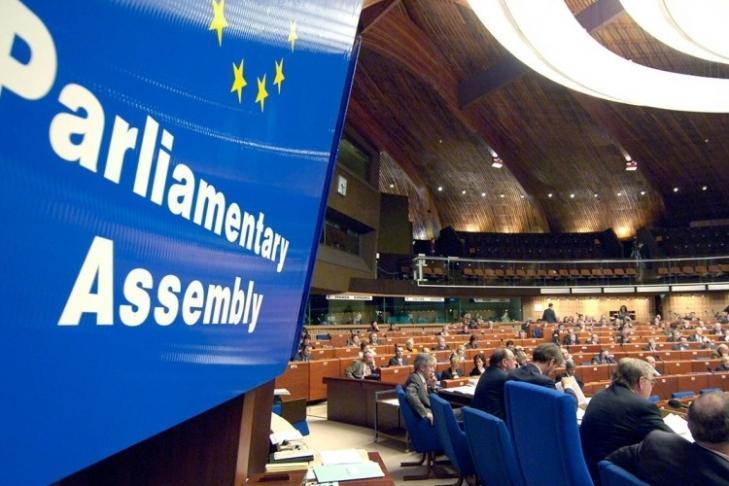
Prime Minister Binali Yıldırım on April 24 blasted a call by the Monitoring Committee of the Council of Europe Parliamentary Assembly (PACE) for the postponement of Turkey’s upcoming early elections on June 24.
“The Parliamentary Assembly should mind its own business. It is not up them to say who will hold elections and when. Turkey has held hundreds of elections with turnouts not below 85 percent,” Yıldırım told reporters in Madrid during a joint press conference with Spanish Prime Minister Mariano Rajoy.
PACE on April 24 called on Turkey to “postpone” the June 24 snap elections, citing the ongoing state of emergency in the country.
“On the same day the elections were announced, the [Turkish] parliament approved the 7th extension of the state of emergency put in place after the failed July 2016 coup. Echoing the Venice Commission concerns, the committee reiterates that it is impossible to hold genuinely democratic elections under the state of emergency and ongoing security operations in southeast Turkey,” the committee said in a meeting in Strasbourg.
One of the main factors compromising the legitimacy of the elections is the space for democratic debate being “narrowed” down with the state of emergency, the committee stated.
“The state of emergency has, since July 2016, led to disproportional measures and unacceptable restrictions on fundamental freedoms - in particular freedom of expression, the media, and assembly. It has negatively and disproportionally affected oppositional and critical voices, as highlighted by the Assembly in its Resolution 2156 (2017). The committee regrets that no progress has been achieved since then,” the committee said.
“A significant number of parliamentarians from the opposition (10), journalists (about 150) and human rights defenders remain in detention, while many other face legal cases on terror-related charges. Many NGOs have been closed down. Numerous media have also been closed down or bought up by pro-government businessmen,” it added.
According to the committee, Turkey’s new electoral system, revised in March, also raised questions about “fair and free elections.”
“Several provisions of the new electoral system raise serious questions about election security and transparency and possible interference of the executive in the election administration. The committee is notably worried by the possible presence of police forces in polling stations, which could have a deterrent effect on voters. It is also concerned that the decision to accept non-stamped ballot papers invalidates the use of stamped ballot papers as a major security measure,” the committee said.
“All these factors combined seriously challenge the democratic nature of the elections. The committee thus recommends that the Turkish authorities postpone the elections,” it added.